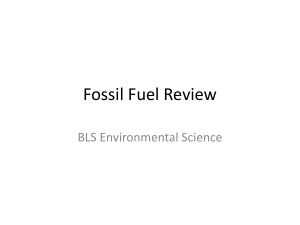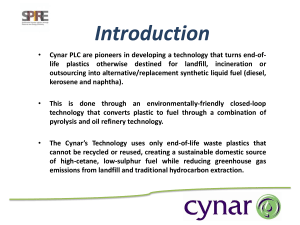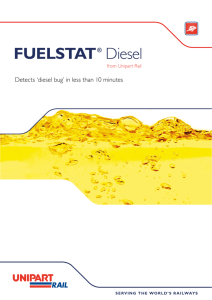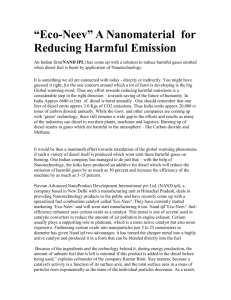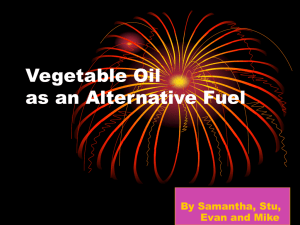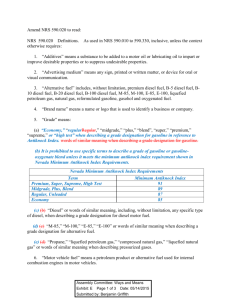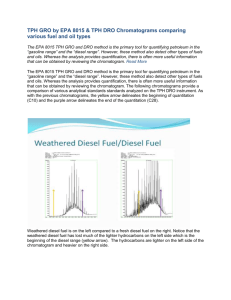Blizzard Bag 2 Article: Tanking Up with Cooking Oil Answers to
advertisement
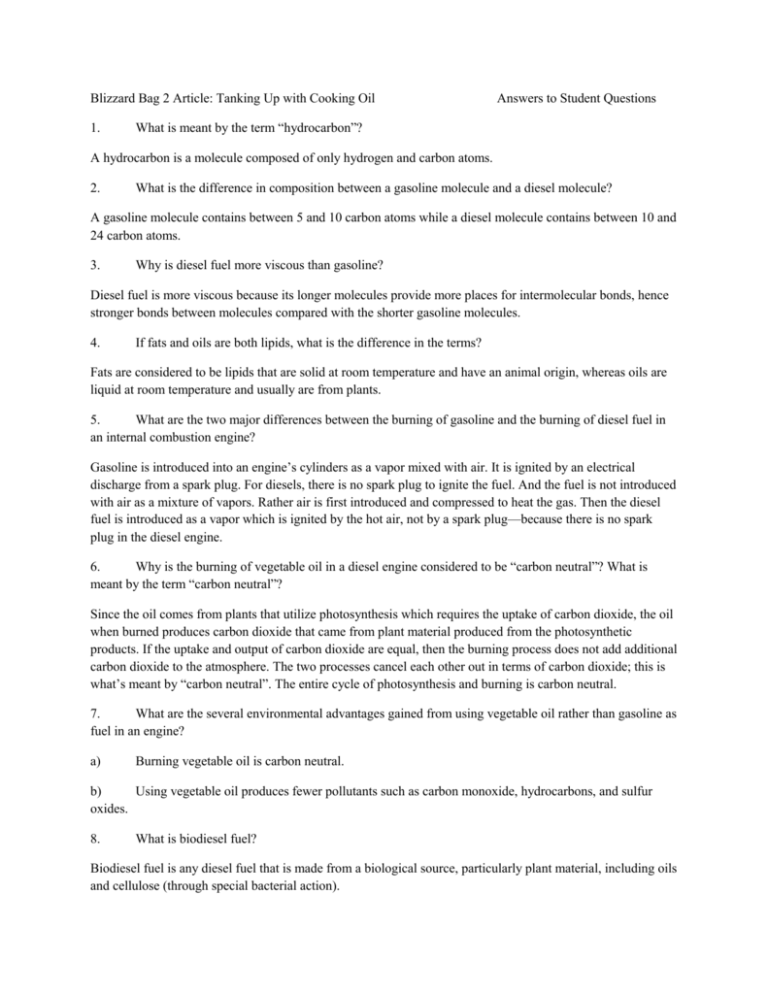
Blizzard Bag 2 Article: Tanking Up with Cooking Oil 1. Answers to Student Questions What is meant by the term “hydrocarbon”? A hydrocarbon is a molecule composed of only hydrogen and carbon atoms. 2. What is the difference in composition between a gasoline molecule and a diesel molecule? A gasoline molecule contains between 5 and 10 carbon atoms while a diesel molecule contains between 10 and 24 carbon atoms. 3. Why is diesel fuel more viscous than gasoline? Diesel fuel is more viscous because its longer molecules provide more places for intermolecular bonds, hence stronger bonds between molecules compared with the shorter gasoline molecules. 4. If fats and oils are both lipids, what is the difference in the terms? Fats are considered to be lipids that are solid at room temperature and have an animal origin, whereas oils are liquid at room temperature and usually are from plants. 5. What are the two major differences between the burning of gasoline and the burning of diesel fuel in an internal combustion engine? Gasoline is introduced into an engine’s cylinders as a vapor mixed with air. It is ignited by an electrical discharge from a spark plug. For diesels, there is no spark plug to ignite the fuel. And the fuel is not introduced with air as a mixture of vapors. Rather air is first introduced and compressed to heat the gas. Then the diesel fuel is introduced as a vapor which is ignited by the hot air, not by a spark plug—because there is no spark plug in the diesel engine. 6. Why is the burning of vegetable oil in a diesel engine considered to be “carbon neutral”? What is meant by the term “carbon neutral”? Since the oil comes from plants that utilize photosynthesis which requires the uptake of carbon dioxide, the oil when burned produces carbon dioxide that came from plant material produced from the photosynthetic products. If the uptake and output of carbon dioxide are equal, then the burning process does not add additional carbon dioxide to the atmosphere. The two processes cancel each other out in terms of carbon dioxide; this is what’s meant by “carbon neutral”. The entire cycle of photosynthesis and burning is carbon neutral. 7. What are the several environmental advantages gained from using vegetable oil rather than gasoline as fuel in an engine? a) Burning vegetable oil is carbon neutral. b) Using vegetable oil produces fewer pollutants such as carbon monoxide, hydrocarbons, and sulfur oxides. 8. What is biodiesel fuel? Biodiesel fuel is any diesel fuel that is made from a biological source, particularly plant material, including oils and cellulose (through special bacterial action).
